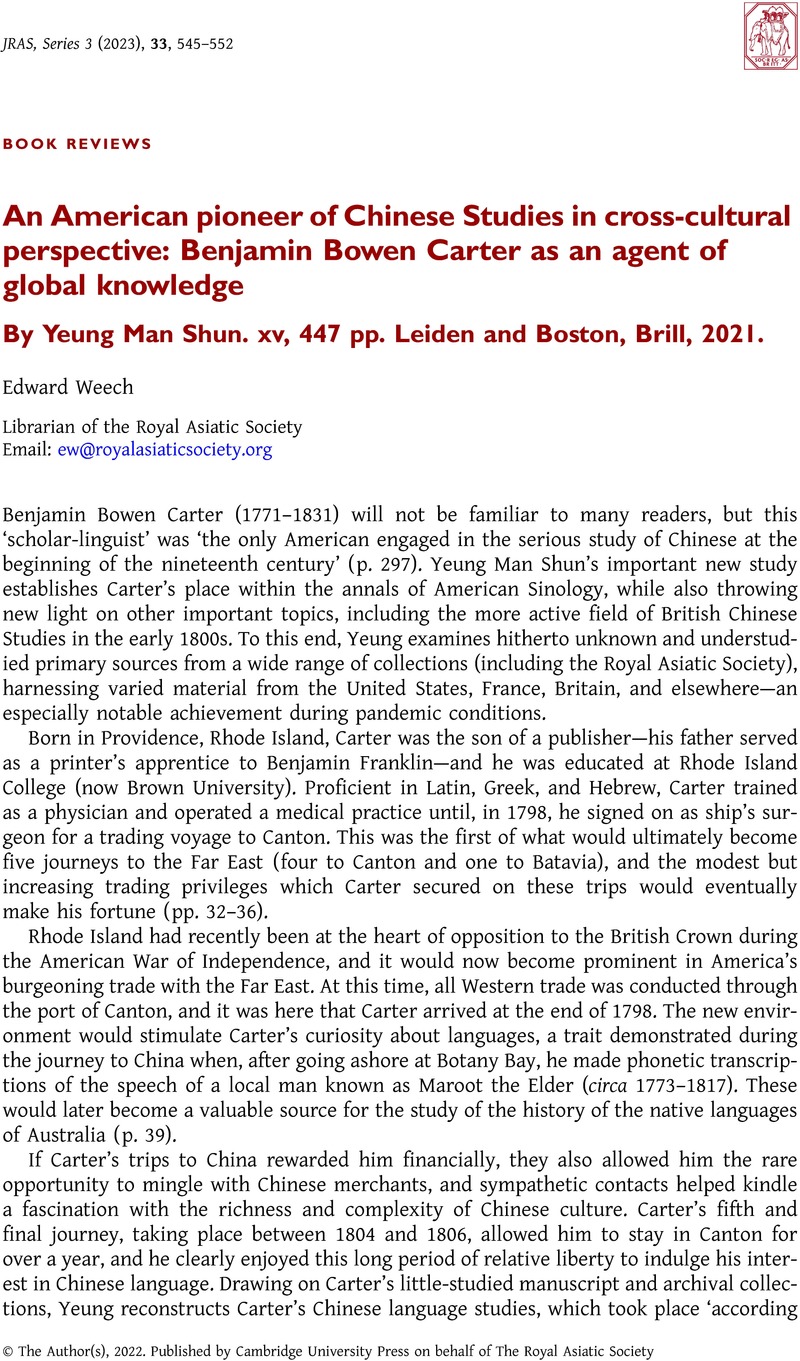No CrossRef data available.
Published online by Cambridge University Press: 24 May 2022

1 For Manning's career, see Weech, Edward, Chinese Dreams in Romantic England: The Life and Times of Thomas Manning (Manchester University Press, 2022)CrossRefGoogle Scholar.
2 Yeung's reference to George Washington's early vision for American relations with foreign nations—while ‘extending our commercial relations, to have with them as little political connection as possible’ (p. 342)—serves as an interesting counterpart to the governing principles of Qing foreign policy.